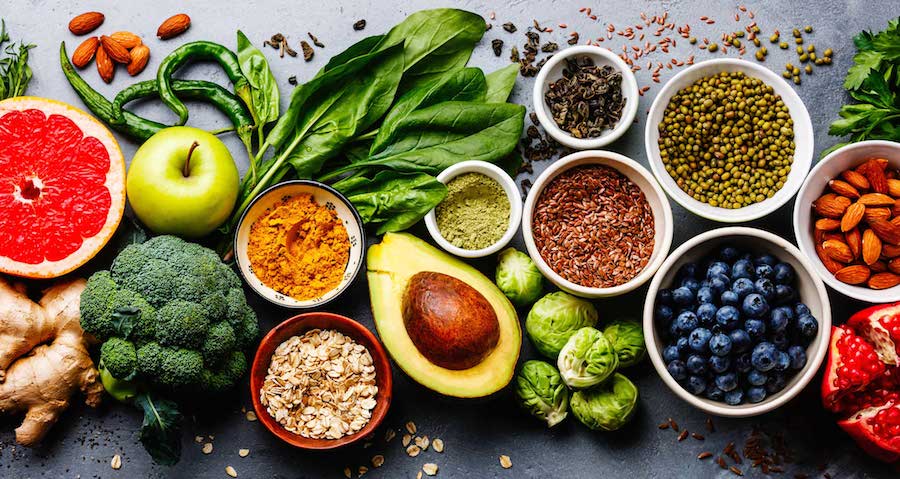Interest in a vegetarian type of food is growing every year. In big cities, new vegetarian restaurants are constantly appearing, and specialized products for vegetarians can be increasingly found on store shelves: vegetable milk, soy meat, desserts without milk and eggs.
Let’s talk about what points people who are committed to this type of diet should pay attention to.
But first, let’s figure out what options for vegetarianism are, depending on the degree of restriction of animal food.
The largest group of vegetarians includes: lacto-vegetarians, ovo-vegetarians and lacto-ovo-vegetarians, whose diet is based on plant foods, but with the addition of dairy products and / or eggs.

A semi-vegetarian or flexitarian diet is a predominantly plant-based diet that sometimes allows for animal products. Simply put, it’s semi-vegetarian. It is sometimes used as a transitional step towards full vegetarianism and is not very welcomed by “real” vegetarians.
Pesko-vegetarianism allows the consumption of fish, seafood, sometimes milk and eggs.
Veganism is the strictest type of diet, excluding all animal products from the diet, including honey.
It is also possible to distinguish a raw food diet into a separate subgroup, which involves the use of foods that have not been subjected to heat treatment: vegetables, fruits, sprouted grains and legumes, seeds, sometimes raw milk and eggs.
Fruitarianism is based on the use of fresh fruits, dried fruits, nuts, seeds.
The position of the International Dietetic Associations is that an adequately selected vegetarian and vegan diet is healthy and able to meet the necessary nutritional needs of the body. A properly organized vegetarian diet is suitable for all healthy people, including athletes, women during pregnancy and lactation, infancy, childhood, adolescence, and old age.
A high intake of fiber, which is rich in plant foods, contributes to lower levels of so-called bad cholesterol (low density lipoprotein) and better control of blood glucose. Vegetarians and vegans have a lower risk of obesity, coronary heart disease and hypertension, type 2 diabetes, and certain types of cancer.
Although a plant-based diet is completely healthy, unlike the standard type of diet, it is more vulnerable to the development of certain nutrient deficiencies or, conversely, fructose overload. That is why vegetarians need to be more careful about their diet and plan their meals more carefully.
What Should Vegetarians and Vegans Pay Attention to?
Protein

Adequate protein and essential amino acid requirements can be achieved with a well planned diet.
Vegans should consume more protein than lacto/ovo vegetarians as protein from whole grains and legumes is less digestible than animal protein.
Plant protein sources include: legumes (beans, lentils, peas, chickpeas, peanuts), soy products, whole grains, nuts, seeds. However, it must be remembered that these products are highly gas-producing and are not suitable for everyone.
Iron
There are two types of iron in food: heme and non-heme. Animal products (red meat, poultry, fish, seafood) contain both types and are better absorbed by the body. Plant foods contain only non-heme iron, which is less well absorbed. It can be found in green vegetables, legumes, cereals, some seeds, and dried fruits. The absorption of iron and some other minerals is interfered with by phytates (phytic acid), which are found in legumes, cereals and seeds. To avoid iron deficiency in a plant-based diet, focus on proper non-heme iron intake. A high intake of vitamin C, which is found in fruits and berries, improves its absorption. And products such as coffee, tea, cocoa, milk, on the contrary, worsen. Certain cooking methods, such as soaking and sprouting beans, grains, and seeds, can also improve iron absorption. The fermentation processes that occur during the preparation of some soy products, such as miso and tempeh, can also affect digestibility in a positive way, although not all studies confirm this.
Zinc
The bioavailability of zinc in a vegetarian diet is similarly reduced to that of non-heme iron due to the high phytate content of plant foods, which limits intestinal absorption. For better absorption, it is recommended to use soaking, sprouting, fermentation and fermentation. Zinc is found in whole grains, legumes, cashews, pumpkin and sunflower seeds, eggs, and dairy products
Calcium
Lactic vegetarians do not experience problems with calcium levels, since their diet contains a sufficient amount of dairy products.
